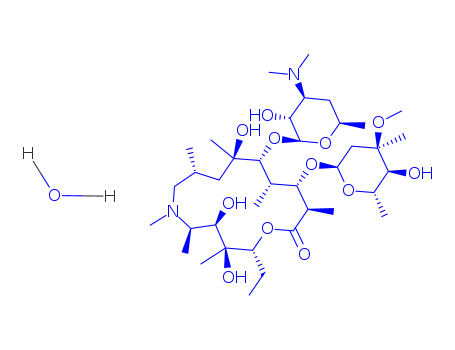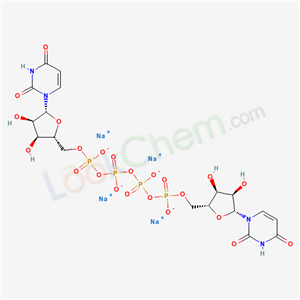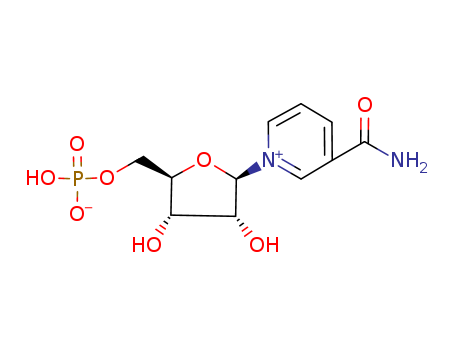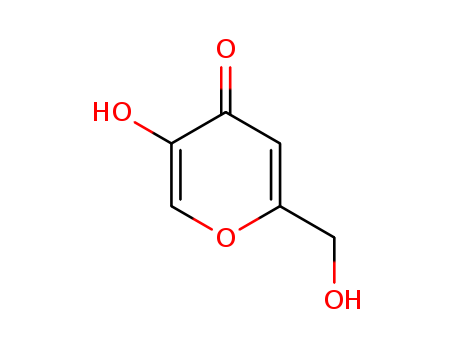
501-30-4
- Product Name:Kojic acid
- Molecular Formula:C6H6O4
- Purity:99%
- Molecular Weight:142.111
Product Details;
CasNo: 501-30-4
Molecular Formula: C6H6O4
Appearance: Tan powder
Wholesale Chinese Manufacturer Supply Kojic acid 501-30-4 Safe Transportation
- Molecular Formula:C6H6O4
- Molecular Weight:142.111
- Appearance/Colour:Tan powder
- Melting Point:152-155 °C
- Refractive Index:1.4434 (estimate)
- Boiling Point:401.7 °C at 760 mmHg
- PKA:7.9(at 25℃)
- Flash Point:179.9 °C
- PSA:70.67000
- Density:1.542 g/cm3
- LogP:-0.16230
Kojic acid(Cas 501-30-4) Usage
|
Description |
Kojic acid is a naturally occurring chemical compound derived from various fungi species such as Aspergillus oryzae, Acetobacter, and Penicillium. It is also produced as a byproduct of the fermentation process in certain foods like soy sauce, rice wine, and Japanese sake. Chemically, it is known as 5-hydroxy-2 hydroxymethyl-4-pyrone and is classified as an alpha-hydroxy acid (AHA). |
| Uses | Skin Lightening: Kojic acid is widely utilized for its bleaching properties, effectively lightening visible sun damage, scars, age spots, and hyperpigmentation. It achieves this by inhibiting the production of free tyrosinase, an enzyme necessary for melanin production. Kojic acid is incorporated into various health and beauty products such as creams, gels, and soaps to promote skin lightening. Treatment of Skin Conditions: Apart from its skin lightening effects, kojic acid is also employed in the treatment of various skin conditions including sun damage, scars, age spots, acne-induced hyperpigmentation, and melasma. Its ability to regulate melanin production makes it a valuable component in skincare formulations targeting these concerns. Antimicrobial Properties: Kojic acid exhibits some degree of antimicrobial activity, although its effectiveness is primarily limited to certain types of bacteria. It is found to be more effective against gram-negative bacteria compared to gram-positive bacteria. However, its antimicrobial activity is generally considered bacteriostatic rather than bactericidal. |
InChI:InChI=1/C6H6O4/c7-2-4-1-5(8)6(9)3-10-4/h1,3,7,9H,2H2
501-30-4 Relevant articles
Adamantyl pyran-4-one derivatives and their in vitro antiproliferative activity
Perokovi?, Vesna Petrovi?,Car, ?eljka,Usenik, Andrea,Opa?ak-Bernardi, Teuta,Juri?, Andrea,Tomi?, Sr?anka
, p. 253 - 263 (2019/04/25)
Abstract: Pyran-4-one (maltol, kojic aci...
Facile reduction of carboxylic acids to primary alcohols under catalyst-free and solvent-free conditions
Harinath, Adimulam,Bhattacharjee, Jayeeta,Panda, Tarun K.
supporting information, p. 1386 - 1389 (2019/02/05)
We report the development of a facile pr...
Inhibition mechanism of kojic acid on polyphenol oxidase
Jon S. Chen, Cheng I Wei, and Marty R. Marshall
, J. Agric. Food Chem. 1991, 39, 11, 1897–1901
Since information concerning the mode of action of kojic acid on PPO was still limited, this study was undertaken to elucidate its action on some of these (mushroom, potato, apple, …
501-30-4 Upstream products
-
58-86-6
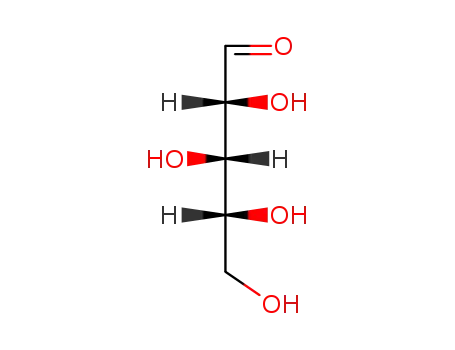
D-xylose
-
69-65-8
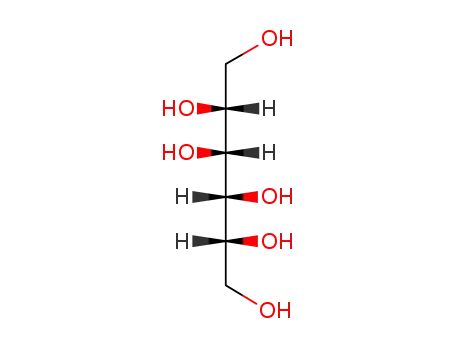
mannitol
-
50-70-4
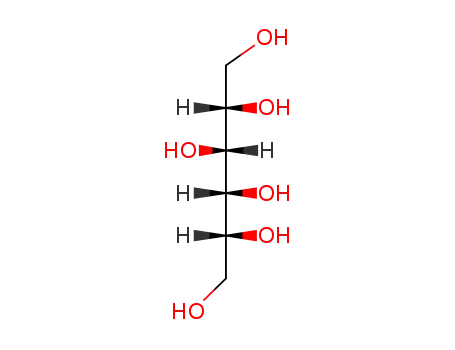
D-sorbitol
-
608-66-2
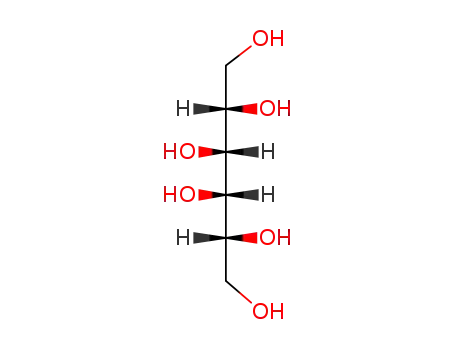
D-galactitol
501-30-4 Downstream products
-
6269-25-6
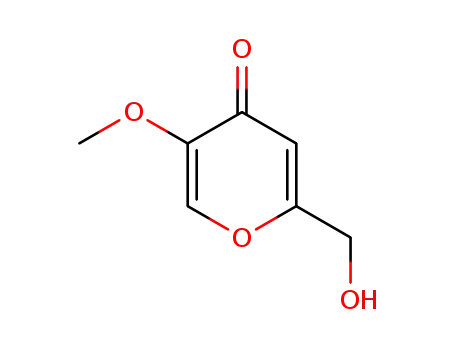
2-Hydroxymethyl-5-methoxy-4H-pyran-4-on
-
103649-94-1
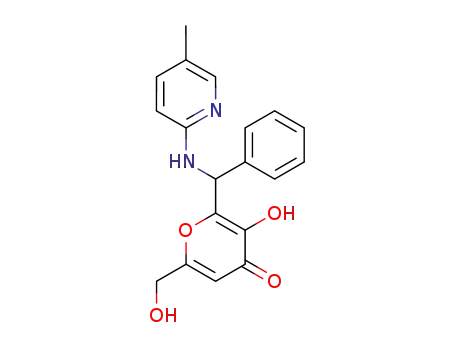
3-hydroxy-6-hydroxymethyl-2-[α-(5-methyl-[2]pyridylamino)-benzyl]-pyran-4-one
-
2029-49-4
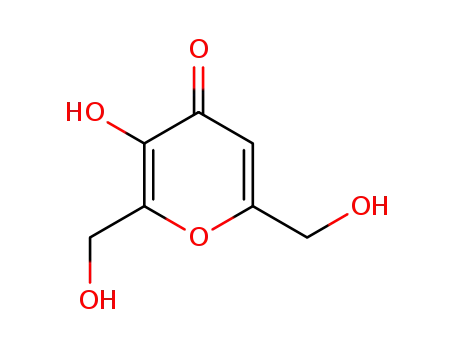
2,6-dihydroxymethyl-3-hydroxy-4-pyrone
-
873969-44-9
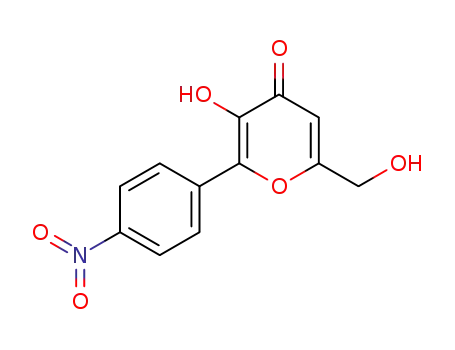
3-hydroxy-6-hydroxymethyl-2-(4-nitro-phenyl)-pyran-4-one
Relevant Products
-
Azithromycin dihydrate
CAS:117772-70-0
-
INS 365
CAS:211427-08-6
-
β-Nicotinamide Mononucleotide
CAS:1094-61-7

